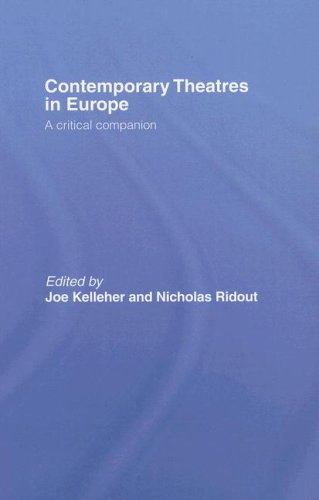

Most ebook files are in PDF format, so you can easily read them using various software such as Foxit Reader or directly on the Google Chrome browser.
Some ebook files are released by publishers in other formats such as .awz, .mobi, .epub, .fb2, etc. You may need to install specific software to read these formats on mobile/PC, such as Calibre.
Please read the tutorial at this link: https://ebookbell.com/faq
We offer FREE conversion to the popular formats you request; however, this may take some time. Therefore, right after payment, please email us, and we will try to provide the service as quickly as possible.
For some exceptional file formats or broken links (if any), please refrain from opening any disputes. Instead, email us first, and we will try to assist within a maximum of 6 hours.
EbookBell Team

0.0
0 reviewsContemporary Theatres in Europe: A Critical Companion offers a series of essays about some of the most interesting theatre currently being made in Europe. It also presents a range of different approaches to the challenge of writing about the experience of theatre and performance. The book includes essays on some of the most celebrated European theatre companies of the last twenty years (Theatre du Soleil, Societas Raffaello Sanzio), as well as considerations of work that is still only to be found in the more secluded parts of the European theatrical landscape. It also includes essays on music theatre, dance and dance theatre and theatre for children: theatrical practices which are often marginalized in critical writing but which are clearly still central to the work of theatre makers in Europe.
This book offers the student, the scholar and the theatre-goer an informed and vivid critical introduction to contemporary theatre in Europe and an open invitation to the reader to extend their theatrical imaginations. A collection of specially commissioned essays which aim to look at current theatre practices across Europe, through specific examples and case studies by specialist writers/academics. The idea is to reconsider ''the possibilities of theatre practice, its relation to history and location and its place in Europe at the turn of the 21st century.'' This is very much connected to crucial questions about the meaning of live performance (in our media-saturated age) which animate this discipline at the moment.